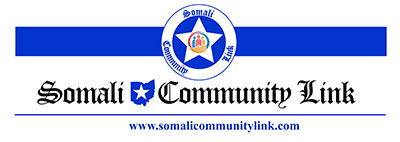Somalia, a country with a long history of conflict, has faced numerous challenges in its economic landscape. The nation has experienced over three decades of political instability, armed conflicts, and natural disasters that have hampered its development.
However, in all these challenges, Somalia also possesses significant opportunities for economic growth and revitalization. This blog explores the key challenges and opportunities that shape the Somali economy.
Challenges
- Political Instability: Political instability has been a major obstacle to Somalia’s economic progress. Frequent changes in leadership, weak governance, and ongoing conflicts have deterred foreign investments and hindered long-term economic planning.
- Infrastructure Deficit: Years of conflict have left Somalia with weak infrastructure, including inadequate transportation networks, unreliable power supply, and limited access to basic services such as clean water and healthcare. Rebuilding and improving infrastructure remain significant challenges.
- Limited Human Capital: Years of conflict and instability have disrupted education systems, resulting in limited access to quality education and a shortage of skilled professionals. Addressing the human capital deficit is crucial to achieving economic growth and development.
- High Youth Unemployment: At 35.63% as of 2022, Somalia has one of the highest youth unemployment rates globally. The lack of job opportunities for the growing young population poses a significant challenge and a potential source of social unrest if left unaddressed.
Opportunities
- Natural Resources: Somalia possesses abundant natural resources, including untapped reserves of oil, gas, and minerals, as well as a vast coastline that offers opportunities for fisheries and marine resources. Responsibly developing these sectors could provide a significant boost to the economy.
- Agriculture and Livestock: Agriculture is the backbone of Somalia’s economy, contributing to employment and exports. With fertile land and a favorable climate, investing in modernizing agricultural practices and value-added processing could enhance productivity and increase food security.
- Diaspora Remittances: The Somali diaspora plays a crucial role in the country’s economy through remittances. Leveraging this source of capital and expertise can fuel entrepreneurship, job creation, and investment in various sectors, such as telecommunications and finance.
- Geographical Advantage: Somalia’s strategic location along major shipping routes presents opportunities for trade and logistics. Developing and modernizing ports and transportation infrastructure can enhance regional connectivity and facilitate increased trade with neighboring countries.
Somalia’s economic landscape is undoubtedly challenging, but it also offers numerous opportunities for growth and development. With the right policies, investments, and a commitment to stability, Somalia has the potential to transform its economy and improve the lives of its people.

Somalis Need Your Help!
Despite the progress in the past decade, the Somali economy is still grappling with several challenges that have forcefully displaced millions of people. More than 75,000 Somali refugees in Ohio need your support to rebuild their lives.
Donate to Somali Community Link; we are a non-profit organization that helps Somali refugees in Columbus, Ohio, meet their housing needs, education, employment, and refugee health funding.
Visit our website to learn more about us.

